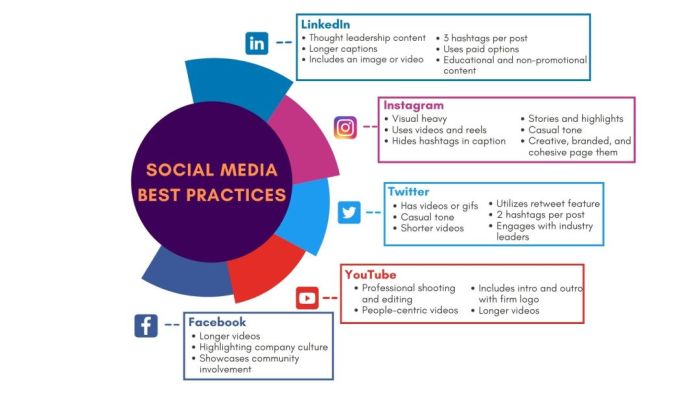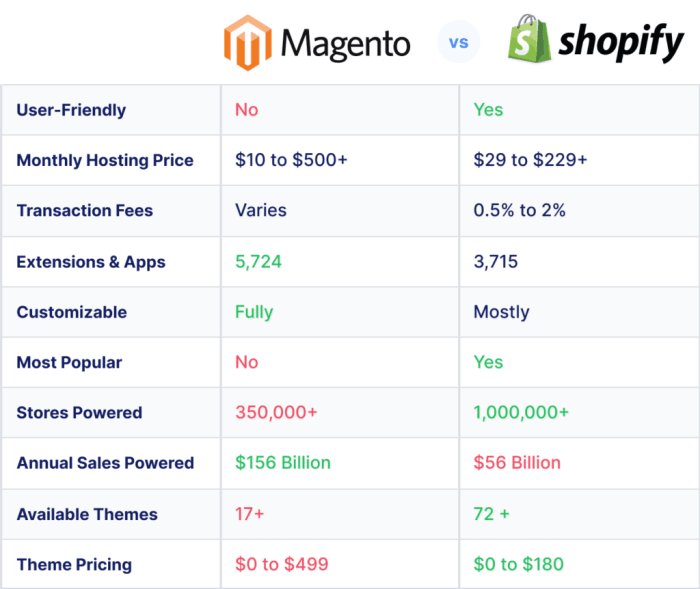Exploring Effective Social Media Strategies for Law Practices
Diving into the realm of Social Media Strategies for Law Practices, this introduction sets the stage for an insightful discussion on leveraging digital platforms for legal firms. From enhancing brand visibility to engaging with a wider audience, the potential benefits are vast and compelling.
As we delve deeper into the intricacies of social media strategies tailored specifically for law practices, a world of possibilities unfolds, where creativity meets professionalism in a harmonious blend.
Importance of Social Media for Law Practices

Social media has become a powerful tool for law practices to connect with potential clients, showcase expertise, and establish credibility in the industry. With the widespread use of social platforms, having a strong online presence is essential for law firms to stay competitive in today's digital age.
Building Brand Awareness
Social media allows law practices to reach a wider audience and increase brand visibility. By sharing valuable content, engaging with followers, and participating in relevant conversations, law firms can strengthen their brand presence and attract new clients.
Establishing Credibility
Through social media, law practices can demonstrate their knowledge and experience in specific legal areas. By sharing case studies, legal updates, and client testimonials, firms can showcase their expertise and build trust with potential clients. This helps in establishing credibility and positioning the firm as a reliable source of legal services.
Successful Examples
- Law firm X utilizes LinkedIn to share thought leadership articles and engage with professionals in the legal industry, positioning themselves as experts in their field.
- Firm Y uses Instagram to showcase their team's achievements, community involvement, and behind-the-scenes glimpses, humanizing their brand and connecting with a younger audience.
- Legal practice Z leverages Twitter to share timely legal updates, participate in trending legal discussions, and interact with followers, increasing their online visibility and credibility.
Choosing the Right Social Media Platforms
When it comes to social media for law practices, choosing the right platforms is crucial for reaching the target audience effectively and maximizing engagement.
Suitable Social Media Platforms for Law Practices
- LinkedIn: LinkedIn is a professional networking platform that allows law firms to showcase expertise, connect with other professionals, and share industry insights.
- Twitter: Twitter is great for real-time updates, news, and engaging with a broader audience through short and concise messages.
- Instagram: Instagram is visually appealing and can be used to showcase the human side of the law firm, behind-the-scenes glimpses, and engaging visual content.
Factors to Consider When Selecting Platforms
- Target Audience: Consider where your target audience spends their time online and which platforms they are most active on.
- Content Strategy: Evaluate the type of content you plan to share and choose platforms that align with your content strategy.
- Resources: Take into account the resources available for managing and maintaining social media accounts on different platforms.
Pros and Cons of Popular Platforms
| Platform | Pros | Cons |
|---|---|---|
| Professional networking, industry credibility, targeted advertising options. | Less engagement compared to other platforms, more formal tone. | |
| Real-time updates, broad reach, hashtag visibility. | Limited characters, quick feed turnover, potential for misinformation. | |
| Visual storytelling, humanizing the brand, high engagement. | Requires high-quality visuals, may not be suitable for all legal topics. |
Creating Engaging Content
Creating engaging content tailored for law practices is crucial to connect with your audience and build a strong online presence. Here are some tips to help you create content that resonates well with your followers while maintaining professionalism on social media.
Content Ideas for Law Practices
- Legal tips and advice: Share valuable legal insights and advice on common legal issues to educate your audience.
- Case studies: Highlight successful cases or interesting legal scenarios to showcase your expertise and experience.
- Client testimonials: Share testimonials from satisfied clients to build trust and credibility with your audience.
- Behind-the-scenes: Provide a peek into your law firm's daily operations and introduce your team to humanize your brand.
Maintaining Professionalism
- Use a formal tone: While being engaging, always maintain a professional tone in your content to uphold the integrity of your law practice.
- Avoid controversial topics: Steer clear of controversial subjects that may compromise your firm's reputation or offend your audience.
- Stay updated: Keep abreast of legal developments and ensure that your content complies with the latest regulations and best practices in the legal industry.
Implementing Social Media Advertising
Social media advertising can be a powerful tool for law practices to reach a targeted audience, increase brand awareness, and drive conversions. By utilizing social media platforms like Facebook or LinkedIn, law firms can create targeted ads that reach specific demographics based on factors such as location, age, interests, and more.
Benefits of Social Media Advertising for Law Practices
- Increased visibility: Social media advertising allows law practices to expand their reach and connect with a larger audience.
- Targeted advertising: By setting specific criteria for your ads, you can ensure they are seen by the right people who are more likely to be interested in your services.
- Cost-effective: Compared to traditional advertising methods, social media advertising can be more budget-friendly and provide a higher return on investment.
Setting Up Targeted Ads on Platforms like Facebook or LinkedIn
When setting up targeted ads on platforms like Facebook or LinkedIn, law practices can follow these steps:
- Create a business account on the platform of choice.
- Define your target audience by specifying demographics, interests, behaviors, and more.
- Create engaging ad content with compelling visuals and copy that resonates with your audience.
- Set a budget for your ad campaign and choose your desired advertising objectives, such as brand awareness, lead generation, or website traffic.
- Monitor the performance of your ads and make adjustments as needed to optimize results.
Strategies to Maximize ROI through Social Media Advertising
- Utilize A/B testing to determine the most effective ad elements, such as headlines, images, and calls to action.
- Track key performance indicators (KPIs) to measure the success of your ad campaigns and make data-driven decisions.
- Retarget website visitors or previous leads to keep your law practice top of mind and encourage conversions.
- Engage with your audience through comments, messages, and interactions to build relationships and trust.
Managing Online Reputation

In today's digital age, managing the online reputation of a law practice is crucial for success. With potential clients turning to the internet to research and evaluate legal services, maintaining a positive image on social media platforms is essential.Negative reviews or feedback online can significantly impact the reputation of a law practice.
Here are some strategies for handling them effectively:
Handling Negative Reviews or Feedback
- Address the issue promptly and professionally, offering a solution or clarification.
- Show empathy and understanding towards the reviewer's concerns, demonstrating a commitment to resolving the issue.
- Encourage the reviewer to take the conversation offline to discuss the matter further and reach a resolution.
- Monitor and respond to reviews regularly to show proactive engagement with clients' feedback.
Leveraging positive reviews can also enhance the reputation of a law practice. Here's how you can make the most of them:
Leveraging Positive Reviews
- Show appreciation for positive feedback by thanking the reviewer and acknowledging their kind words.
- Showcase positive reviews on your social media profiles or website to build credibility and trust with potential clients.
- Encourage satisfied clients to leave reviews on multiple platforms to increase visibility and strengthen your online reputation.
- Use positive reviews as testimonials in your marketing materials to highlight the quality of your services and the satisfaction of your clients.
Last Word
In conclusion, the landscape of social media strategies for law practices is rich with opportunities for growth and success. By implementing the right tactics and maintaining a strong online presence, legal firms can truly elevate their brand and reach new heights of recognition and credibility.
FAQ Explained
How can social media benefit law practices?
Social media can significantly enhance brand visibility, help in engaging with a wider audience, and build credibility for law practices.
Which social media platforms are most suitable for law practices?
LinkedIn, Twitter, and Instagram are popular platforms that offer unique advantages for law firms in reaching their target audience.
What are some tips for creating engaging content for law practices on social media?
Tailor content to resonate with the audience, maintain professionalism, and utilize visuals effectively to capture attention.
How can law practices handle negative reviews on social media?
Respond promptly, professionally, and offer solutions to address the concerns raised in negative reviews to maintain a positive online reputation.




